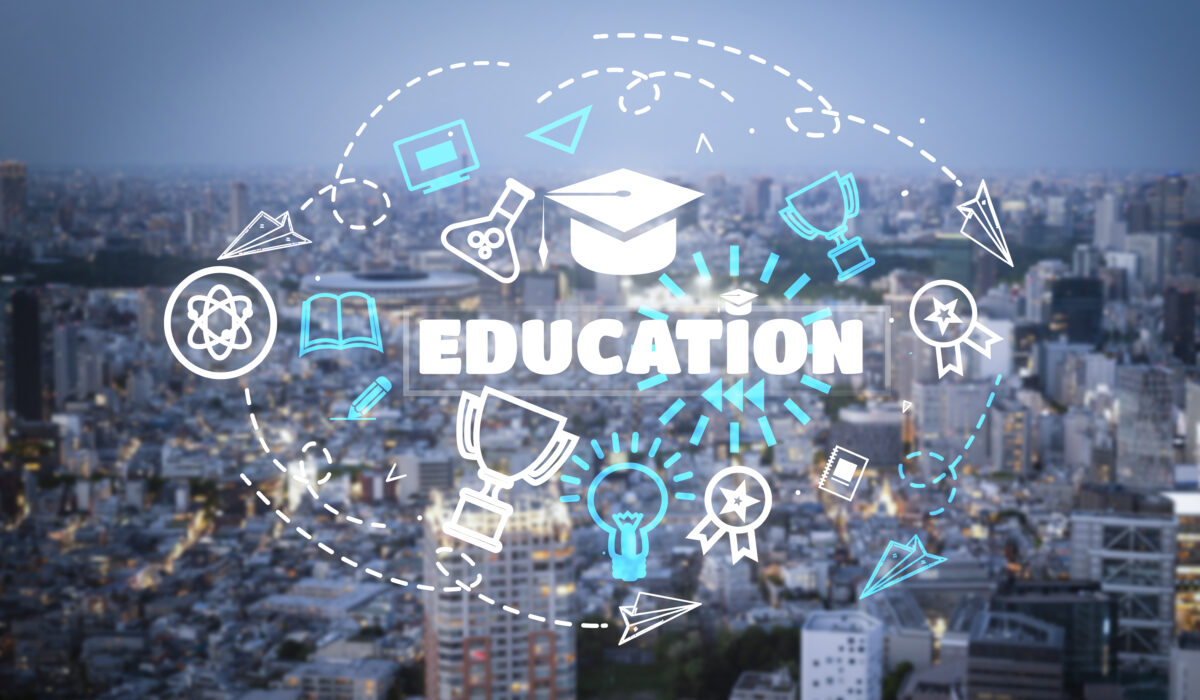Education is more than reading textbooks or passing exams—it is the foundation of personal growth, career development, and a better society. For students, education is the gateway to knowledge, empowerment, and lifelong opportunities. In today’s fast-changing world, the importance of education for students cannot be overstated.
🌱 What Is Education?
Education is the process of acquiring knowledge, values, skills, and habits that prepare individuals for life. It can happen in schools, colleges, at home, or even online. But for students, especially during their early and teenage years, formal education plays a vital role in shaping their thinking, personality, and future.
🎯 Why Education Is Important for Students
1. Knowledge and Skills Development
Education equips students with essential knowledge in subjects like science, math, languages, and social studies. It helps them develop critical thinking, communication, problem-solving, and creativity—skills that are valuable in every field of life.
2. Personal and Social Growth
Learning helps students build self-confidence, discipline, and responsibility. It teaches them teamwork, ethics, and the ability to respect different opinions—qualities needed to become respectful and well-rounded citizens.
3. Better Career Opportunities
A good education opens doors to higher education, skill development, and better job prospects. In a competitive world, educated individuals are more likely to find stable and rewarding careers.
4. Financial Independence
With strong education, students can later pursue careers that provide financial security. This enables them to support themselves and their families and contribute positively to the economy.
5. Improving Society
Educated students grow up to become teachers, doctors, scientists, engineers, leaders, and responsible citizens. They help reduce poverty, solve problems, and make informed decisions that benefit the entire community.
🏫 The Role of Schools in Student Education
Schools are more than just buildings—they’re learning environments where students receive structured education and life training. Teachers play a key role in guiding students, motivating them, and identifying their strengths and weaknesses.
Modern education systems also focus on:
- Life skills
- Digital literacy
- Emotional well-being
- Environmental awareness
- Inclusive learning for all abilities
💡 Benefits of Early Education
Early education (kindergarten to grade 5) lays the groundwork for a lifetime of learning. During this stage, children develop:
- Reading and writing habits
- Motor and sensory skills
- Social interaction and discipline
- Curiosity and creativity
Investing in quality early education has been shown to increase graduation rates and lifelong success.
🌍 Education in the 21st Century
Today, education isn’t limited to textbooks. With the rise of technology:
- Online learning platforms make education accessible from anywhere.
- Smart classrooms enhance visual learning.
- Digital tools help students practice and improve independently.
- Global collaboration introduces students to diverse cultures and ideas.
👨🎓 Tips for Students to Maximize Their Education
- Stay curious – ask questions and explore beyond the syllabus.
- Use technology wisely – access online videos, courses, and tools.
- Balance study and rest – avoid burnout with a healthy routine.
- Seek help when needed – don’t hesitate to talk to teachers or mentors.
- Practice discipline – make time for homework, revision, and self-study.
🧠 Real-Life Impact of Education
- A student who learns public speaking in school becomes a confident leader.
- A girl in a rural village learns coding and builds a career in tech.
- A boy who reads about climate change starts a green project in his community.
Every educated student has the power to create real-world impact.
🤔 FAQs
Q: Why is education important for students?
A: Education develops knowledge, skills, character, and confidence—preparing students for success in life.
Q: What is the best age to start education?
A: Children can begin learning as early as age 2–3 in pre-schools or at home through playful interaction.
Q: Can students learn outside of school?
A: Yes. Learning can happen through books, online courses, experiences, and interactions at home and in society.
✅ Conclusion
The importance of education for students lies in its ability to shape minds, build character, and prepare individuals for the challenges and opportunities of life. It gives students the tools they need to dream, act, and achieve. Education is not just a right—it’s the most powerful investment in a student’s future.
As Nelson Mandela said, “Education is the most powerful weapon which you can use to change the world.”







